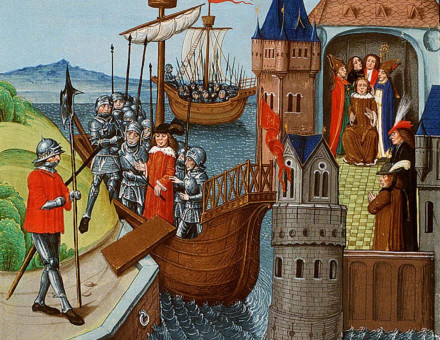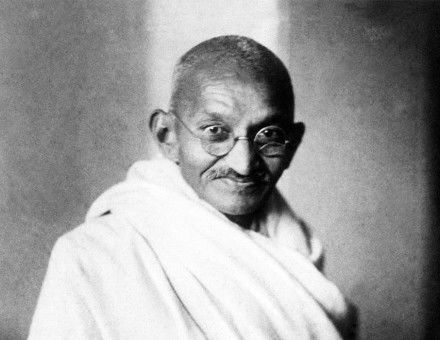Football and Fascism
When the England football team visited Germany in May 1938, diplomatic protocol resulted in the team giving a Nazi salute.
Politics and football are a dangerous combination. Yet football has largely been spared the worst excesses of political interference. Mussolini’s order to the Italian World Cup side of 1938 to win the trophy or not bother returning home – Italy won – has proved unusual.
But with another World Cup about to begin, a notorious example of political interference in the game is worth revisiting. In May 1938 the England football team visited Berlin and, before over 100,000 spectators, gave the Nazi salute. The reverberations of that incident still resound. As James Corbett comments in his book England Expects (De Coubertin, 2010): ‘No one incident in the history of British sport has caused such consternation and controversy.'
In 1938, international football, like much else, was overshadowed by the spectre of armed conflict. Before the First World War England had toured the hotbed of central European football, the old Austro-Hungarian Empire, with two foreign tours, the first in 1908 to play Austria, Hungary and Bohemia. Germany was not on the itinerary.
When peace returned to Europe after 1918, England began playing friendlies with her wartime allies, France and Belgium, then Sweden, Luxembourg, Spain, and even her war-time enemies Austria and Germany. Austria proved a difficult opponent, narrowly defeated 3-2 in 1932. Earlier, during the Weimar Republic, a match against Germany took place in Berlin on May 10th, 1930, ending in a 3-3 draw. A visit by the Germans to London in December 1935, after the Nazi takeover, led to a 3-0 England victory, but aroused little controversy and became just another score to put in the record books.
By May 1938 the climate had changed. The aggressiveness of Nazi Germany had become ever more apparent; only a few weeks earlier Hitler had annexed Austria in the Anschluss. Most of England’s footballers were apolitical, barely aware of the disappearance of what had been their most potent sporting foe. But when they reached Berlin it became clear that this would not be an ordinary match.
Recalling what happened six years after the event, the England captain, Eddie Hapgood, suggested that the British Olympic team had caused offence to their German hosts in 1936 when it had given neither the Nazi salute nor that of the Olympic movement (the right arm flung sideways rather than upwards in the manner of the Nazis) and ‘the authorities’ were anxious to avoid more controversy.
Quite which authorities Hapgood was referring to has never been fully established. It is generally accepted that Britain’s Ambassador in Berlin, Sir Nevile Henderson, a staunch supporter of appeasement, was consulted, but whether he ordered the salute is disputed. According to Hapgood, the two British officials in charge, Charles Wreford-Smith and the new FA Secretary Stanley Rous, visited Henderson voluntarily as they were uncertain of the protocol. Hapgood suggests Rous proposed that the team give the salute, a move Henderson endorsed. The FA officials then informed Hapgood, who objected to doing anything more than standing for the German national anthem. However, he had little choice and he informed the team. It led to ‘much muttering in the ranks’, as he describes in his book Football Ambassador (GCR, 2009). Wreford Brown then told the team that ‘there were undercurrents of which we knew nothing, and that it was virtually out of his hands and a matter for the politicians rather than the sportsmen’.
Two other participants have given their views. Rous, in his autobiography, Football Worlds (Faber, 1978), claimed that he had indeed gone to see Henderson, who said to him that the salute had little political significance but gave no orders to give it, seeing it as just a courtesy. Rous claimed he put that view to the players ‘leaving the choice up to them’, explaining though that their decision could affect the atmosphere at the stadium. He writes that ‘all the players agreed they had no objection, and no doubt saw it as a bit of fun’.
This was not how England’s star winger Stanley Matthews remembered it. In The Way It Was (Headline, 2001), Matthews reports that, when an FA official came into the dressing room to tell the team to give the salute, ‘The dressing room erupted. All the England players were livid and totally opposed to this, myself included … Eddie Hapgood told him what he could do with the Nazi salute, which involved putting it where the sun don’t shine.’ The official, according to Matthews, went away and came back saying he had ‘a direct order from Sir Nevile Henderson … that had been endorsed by the FA Secretary Stanley Rous … the political situation between Great Britain and Germany was now so sensitive that it needed “only a spark to set Europe alight”’. Faced with this virtual ultimatum, the team agreed to give the salute.
There is no disagreement about what happened when the England team took to the pitch. The squad had only arrived two days earlier after a long boat and rail trip, but the Germans had spent a fortnight training in the Black Forest and the regime expected a propaganda victory. Hitler was not present at the match, but leading Nazis such as Hess, Ribbentrop and Goering sat alongside Henderson in the Führer’s box as the teams took to the pitch. The English team had two seasoned pros in Hapgood and Cliff Bastin of Arsenal, but of the rest none had more than nine caps and two of the players – Frank Broome of Aston Villa and Donald Welsh of Charlton – were playing their first internationals. It would be a baptism of fire for them.
England won 6-3, a moral victory over political manoeuvering that initially defused the controversy over the England team’s Hitler salute. However, when war finally became reality 14 months later, the match came to be seen in another perspective. Matthews relates that the day before the game, he and the full-back Bert Sproston had gone for a stroll and seen Hitler’s cavalcade drive past with passers-by springing to salute the Führer. Sproston turned to Matthews and said: ‘Stan, I’m just a working lad from Leeds. I know nowt about politics and the like. All I knows is football. But t’way I see it, yon ‘Itler feller is an evil little twat.’ Sproston crudely but presciently expressed what would become the verdict of history.




